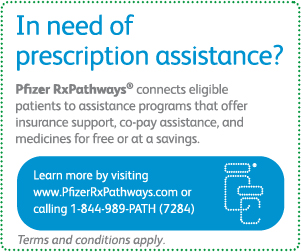Perimenopause
- Typically begins in mid 40s
- Estrogen levels start to decline
- Periods may be unpredictable and less frequent
Menopause
- Defined as going without a period for 12 consecutive months
- Average age at onset is 52 years
- Estrogen levels drop markedly
Postmenopause
- Includes all of the years after menopause
- Estrogen levels continue to drop
-
Symptoms of vaginal atrophy,Vaginal atrophy: The thinning, drying, and inflammation of the vaginal walls. This can occur when your body has less estrogen due to menopausal changes. For many women, vaginal atrophy makes intercourse painful. such as painful intercourse, may worsen over time
There's more to menopause than you may know
Hot flashes and night sweats—that’s what you usually hear about when it comes to menopause. But nobody really tells women that after menopause, intercourse may become painful. And it’s more common than you may think.

of postmenopausal women experience vaginal changes, and painful intercourse called dyspareunia,Dyspareunia: The medical term for painful intercourse. Persistent or recurrent genital pain that occurs just before, during, or after intercourse. is a common symptom.
Why sex may hurt
Before menopause, estrogens help maintain the thickness and elasticity of the vaginal tissue. After menopause, levels of estrogens drop. This can lead to:
- Dry and thin vaginal walls
- Diminished vaginal blood flow
- Painful intercourse
Premarin (conjugated estrogens) Vaginal Cream helps rebuild vaginal walls and helps make sex more comfortable. Learn how Premarin Vaginal Cream may help women with moderate to severe painful intercourse due to menopause.

Talk to your doctor about Premarin Vaginal Cream
Symptoms of vaginal atrophy due to menopause, including painful intercourse, are unlikely to go away on their own. They may even worsen over time. You may be embarrassed to talk to your doctor about your symptoms, but don’t be! Your healthcare provider can properly diagnose your condition. He or she can help you understand your treatment options, including Premarin Vaginal Cream.
We’ve created a Doctor Discussion Guide to help you start the conversation and see if Premarin (conjugated estrogens) Vaginal Cream is right for you.
You should discuss your symptoms as well as your medical history with your doctor before beginning treatment.
Do not start using Premarin Vaginal Cream if you have unusual vaginal bleeding, currently have or have had certain cancers, had a stroke or heart attack, currently have or have had blood clots, currently have or have had liver problems, have been diagnosed with a bleeding disorder, are allergic to Premarin Vaginal Cream or any of its ingredients, or think you may be pregnant.
There are certain risks associated with Premarin Vaginal Cream therapy. Premarin Vaginal Cream should be used at the lowest effective dose for the shortest duration consistent with the treatment goals and risks for the individual woman.



